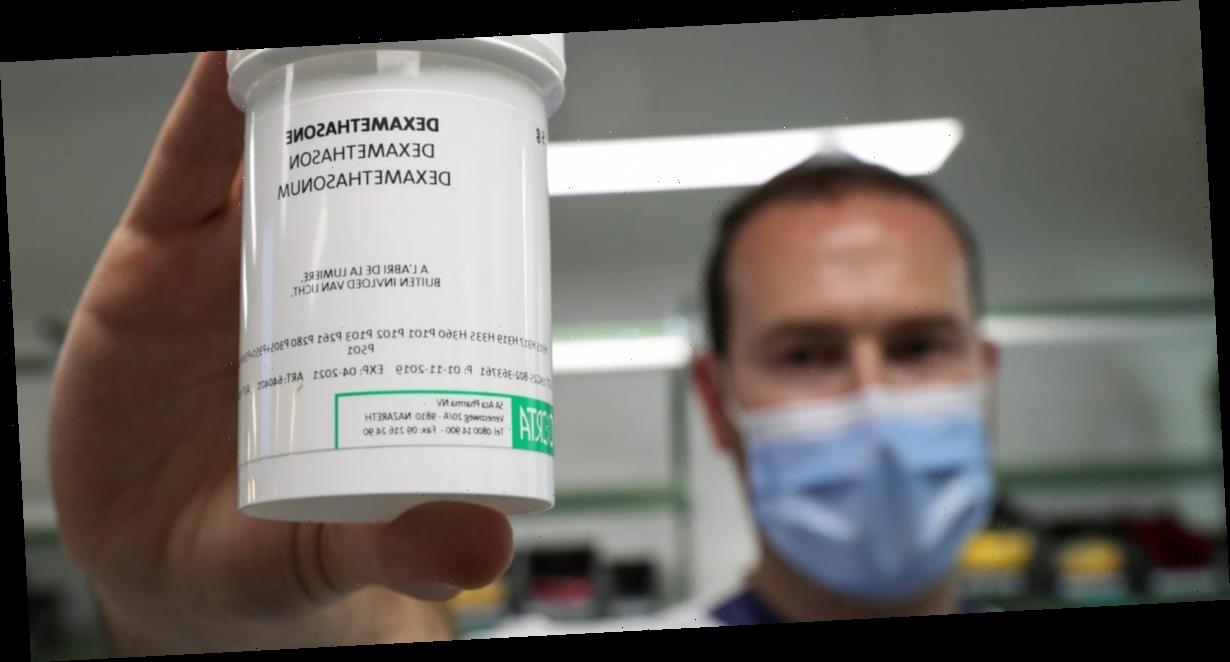- Corticosteroids are a class of drugs that suppress out-of-control immune-system responses.
- They may improve survival rates for patients with severe cases of COVID-19, according to new research.
- Based on the results of seven clinical trials, the World Health Organization issued a "strong recommendation" for the use of steroids among seriously ill patients.
- Steroids are cheaper and more readily available than remdesivir, the only other drug that's shown promise in treating serious COVID-19 cases.
- Visit Business Insider's homepage for more stories.
Corticosteroids — a cheap and widely available class of drugs — can help people with serious cases of COVID-19 survive, according to trial results published this week.
A robust analysis looking at seven trials of corticosteroids found that when patients on ventilators were treated with steroids, they had a 30% chance of dying, compared with a 38% chance among patients who didn't take steroids. For patients treated without ventilators, the benefit was even greater: People given steroids had a 23% chance of dying, compared with a 42% chance for people in a control group.
"This is equivalent to around 68% of [the sickest] patients surviving after treatment with corticosteroids, compared to around 60% surviving in the absence of corticosteroids," the researchers said, according to Reuters.
The steroids in the trials included methylprednisolone, hydrocortisone and dexamethasone.
Based on the results, the World Health Organization issued a "strong recommendation" on Wednesday that doctors give seriously ill COVID-19 patients dexamethasone or hydrocortisone. The organization isn't recommending steroids for people who are not seriously ill, however.
Corticosteroids can prevent immune-system overreactions
Corticosteroids are synthetic hormones that mimic cortisol, a hormone the body produces naturally to help regulate metabolism, immune reactions, and stress response. Doctors use corticosteroids to tamp down on overactive immune systems and reduce inflammation, which can help with a variety of conditions including asthma and skin disorders.
The coronavirus can trigger overactive immune responses, which can be deadly: When too many white blood cells flood the bloodstream, some attack healthy tissue in addition to the virus. Steroids, then, can help suppress that kind of dangerous immune response among COVID-19 patients.
Scientists at Oxford University found in June that dexamethasone, specifically, improves patients' survival rates, but at that time, experts and international organizations wanted more evidence before making recommendations. Now they have it.
"Clearly, now steroids are the standard of care," Dr. Howard C. Bauchner, the editor-in-chief of the Journal of the American Medical Association, told The New York Times.
Corticosteroids are cheaper than remdesivir and may be more effective
Remdesivir is the only other drug so far that rigorous trials have found to be effective for treating seriously ill COVID-19 patients. In May, a study found that remdesivir shortened recovery times for those patients. However, a recent study also found that patients on a 10-day course of remdesivir died at about the same rates as people given other treatments.
Corticosteroids, then, might offer more promise.
"I had a big smile on my face when I saw the results," Dr. Derek C. Angus, chair of the department of critical care medicine at the University of Pittsburgh and a co-author of one of the trials, told the Times.
The National Institutes of Health also now recommends corticosteroids, particularly dexamethasone, for COVID-19 patients who need ventilators or supplemental oxygen.
An added benefit of corticosteroids is that they're cheap. A six-to-10-day treatment course of dexamethasone would likely cost would cost most customers between $10 and $13, according to Michael Rea, the CEO of Rx Savings Solutions, which sells software designed to help select less expensive medicines.
By contrast, Gilead Sciences, the maker of remdesivir, has said it would charge governments of developed countries $2,340 for a five-day course of the drug.
Steroids can have side effects, though
Corticosteroids can have some side effects, particularly in elderly patients: The drugs can leave people vulnerable to other infections and raise the risk of high blood pressure, glaucoma, weight gain, and delirium.
They also don't appear to be effective for less serious cases. In the Oxford trial, for example, patients with mild cases who took dexamethasone died at slightly higher rates than those with mild cases who didn't take the drug.
That's why the WHO and the NIH aren't recommending steroids for patients who aren't severely sick. But for the most life-threatening cases, the pros appear to outweigh the cons.
Healthcare Explained:
Telehealth Industry
Value-Based Care
Senior Care & Assisted Living Market
Medical Devices & Wearable Tech
AI in Healthcare
Remote Patient Monitoring
Do you have a personal experience with the coronavirus you’d like to share? Or a tip on how your town or community is handling the pandemic? Please email [email protected] and tell us your story.
Get the latest coronavirus business & economic impact analysis from Business Insider Intelligence on how COVID-19 is affecting industries.
Source: Read Full Article
